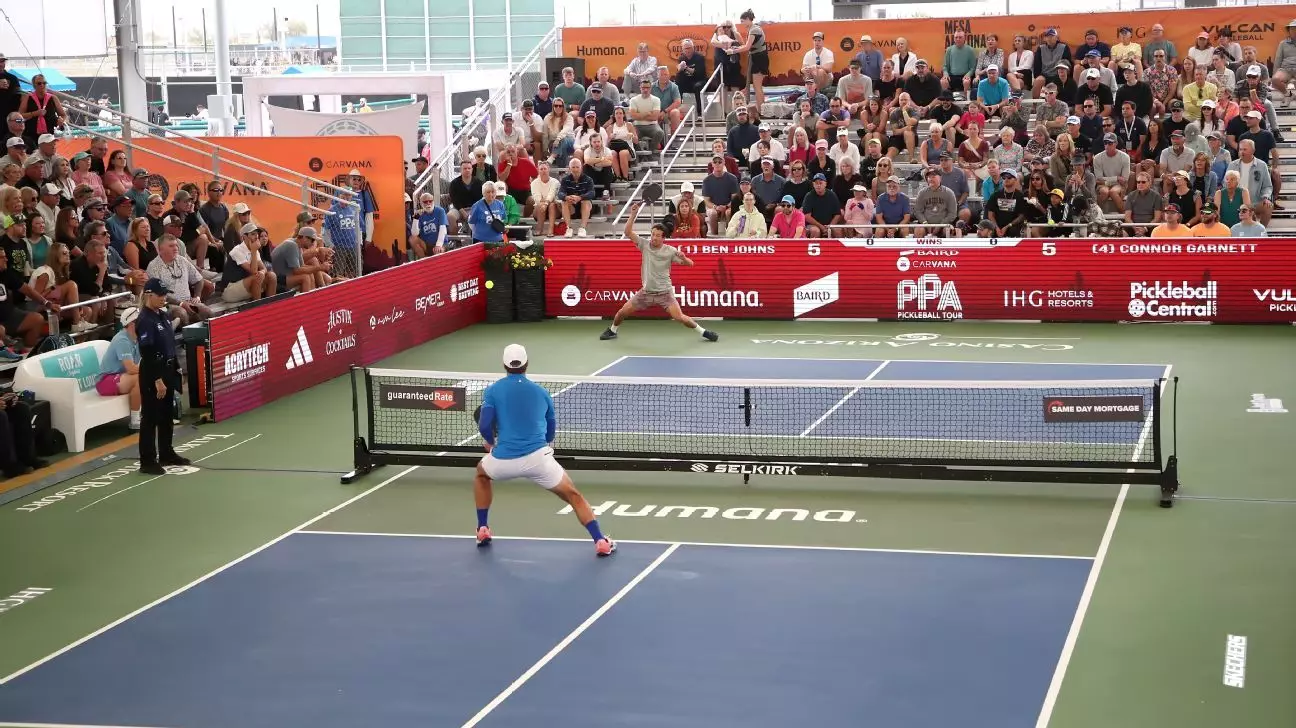The formation of the World Pickleball Players Association (WPPA) marks a pivotal moment in the sport’s evolution. Unlike traditional sports that have long-standing player unions, pickleball has previously lacked a unified, independent body representing its tour professionals. Now, this new association signifies not just a formalization but a paradigm shift—highlighting players’ desire to shape their destiny rather than remain passive participants in a rapidly growing sport. This move embodies the broader quest for athlete empowerment, emphasizing that competitors are no longer willing to accept decisions made unilaterally or without their input. It’s a declaration that players want a seat at the table, particularly in areas concerning health, safety, and fair compensation.
Identification of Long-Standing Issues and Opportunities
The impetus behind establishing the WPPA lies in addressing persistent issues that have historically plagued professional pickleball players. Prior to this, advisory councils and tour-sponsored groups lacked the independence and authority necessary for meaningful change. Players have voiced frustrations over the ranking system, scheduling conflicts, safety protocols, and inconsistent treatment across tournaments. By creating a player-led organization, they aim to establish standards that prioritize their welfare and foster a more transparent environment. This is especially crucial considering pickleball’s explosive popularity, which has transformed the landscape into a lucrative arena for participants earning substantial prizes and sponsorship deals.
Top players like Collin Johns articulate a clear vision: ensuring equitable treatment regardless of a player’s ranking. Whether you’re at the top or just starting out, the association seeks to guarantee fairness, professionalism, and clarity. In this context, the WPPA doesn’t see itself as an adversary but as a positive agent of change—collaborating with existing tours and leagues but pushing for reforms that benefit the sport’s integrity and its athletes.
A Play for Legitimacy and Influence
Interestingly, the emergence of the WPPA echoes similar movements in other sports, notably tennis’s Professional Tennis Players Association (PTPA). These organizations symbolize athletes’ push for independence and decision-making power. Currently classified as independent contractors, pickleball players lack the same collective bargaining rights that unionized athletes possess in traditional professional leagues like baseball or football. This makes the WPPA’s role akin to an advocate rather than a labor union—striving to give players a unified voice without the complex machinery of union negotiations.
The influence of Sports Solidarity, founded by former baseball player Harry Marino, underscores this strategic approach. Marino’s organization has a history of championing athlete rights, and its involvement lends credibility to the WPPA’s mission. Marino emphasizes that this isn’t about profit or exploitation but about safeguarding the sport’s future and ensuring players are heard. It’s a move driven by respect for the sport’s growth and a recognition that players’ needs should evolve alongside the sport itself.
Challenging the Status Quo and Shaping a Bright Future
The key issue at the heart of this movement isn’t just about individual grievances but about setting baseline standards that can elevate the sport as a whole. Questions about safety, rankings, scheduling, and disciplinary practices are fundamental to creating a professional environment where players can thrive—free from arbitrary decisions or inconsistent rule enforcement. Johns emphasizes that the association’s aim isn’t to disrupt but to establish minimum standards that all stakeholders can agree upon, fostering cooperation rather than conflict.
By focusing on these core issues, the WPPA hopes to catalyze a shift toward greater professionalism and fairness. This is especially important as pickleball’s popularity surges, attracting bigger audiences, more sponsorship dollars, and wider media attention. The association’s success could serve as a blueprint for other emerging sports seeking athlete representation and standardization.
The response from unrelated sports bodies, such as the tennis PTPA, highlights a universal truth: athlete empowerment is increasingly recognized as essential for the integrity and sustainability of competitive sports. The players’ move in pickleball isn’t merely about advocacy; it’s about shaping an industry that respects its athletes and values their contributions at every stage. Whether this will translate into tangible improvements remains to be seen, but the intention and momentum are undeniable—pickleball is stepping into a new era of athlete-driven governance.


Leave a Reply